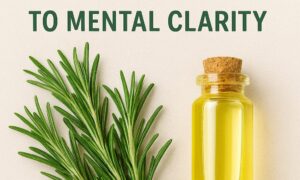In today’s fast-paced world, stress and anxiety have become common companions in many people’s lives. Whether it’s due to work pressures, personal challenges, or the constant barrage of information, managing these feelings is essential for maintaining overall health and well-being. While there are various medical treatments available, many individuals seek natural solutions that promote calmness and balance without side effects. Thankfully, nature offers a wide array of remedies and lifestyle habits that can help reduce stress and anxiety effectively.
Understanding Stress and Anxiety
Stress is the body’s natural response to challenging situations, triggering the release of hormones like cortisol and adrenaline. These chemicals prepare the body to face danger or demands by increasing heart rate, heightening alertness, and sharpening senses. While this “fight or flight” response is useful in short bursts, chronic stress can negatively affect physical and mental health.
Anxiety, on the other hand, is characterized by persistent feelings of worry, nervousness, or fear that are often disproportionate to the actual situation. It can interfere with daily activities, sleep, and relationships. Both stress and anxiety can manifest through symptoms such as irritability, muscle tension, headaches, and difficulty concentrating.
The Power of Natural Solutions
Natural approaches to managing stress and anxiety focus on calming the nervous system, improving mood, and promoting relaxation. These solutions often involve simple changes in lifestyle, diet, and the use of herbal remedies. They work gently to restore balance in the body and mind, making them suitable for long-term use.
Mindfulness and Meditation
One of the most effective natural tools for reducing stress is mindfulness meditation. This practice involves paying attention to the present moment without judgment, which helps break the cycle of negative thoughts that fuel anxiety. Regular meditation has been shown to lower cortisol levels, reduce heart rate, and enhance feelings of well-being.
Starting with just a few minutes a day can make a significant difference. Techniques such as deep breathing, guided visualization, or body scans help anchor attention and release tension. Over time, mindfulness can improve emotional resilience and provide a sense of calm amid life’s uncertainties.
Herbal Remedies
Several herbs have long been used in traditional medicine to ease anxiety and stress. These plants contain natural compounds that support the nervous system and promote relaxation without sedation.
- Chamomile: Known for its calming effects, chamomile tea can soothe the mind and aid sleep. Its mild sedative properties help reduce nervousness and restlessness.
- Lavender: Often used in aromatherapy, lavender oil is effective in lowering anxiety and improving mood. Diffusing lavender or adding it to a bath can provide gentle relief.
- Valerian Root: This herb is traditionally used to improve sleep quality and reduce anxiety. It may help relax muscles and calm the mind before bedtime.
- Ashwagandha: An adaptogenic herb, ashwagandha helps the body cope with stress and stabilize mood by regulating cortisol production.
When using herbal remedies, it’s important to choose high-quality products and consult with a healthcare provider if you have underlying health conditions or take medications.
Physical Activity
Exercise is a natural stress buster. Physical movement releases endorphins, which are chemicals in the brain that act as natural painkillers and mood elevators. Regular exercise also helps improve sleep, reduce muscle tension, and increase energy levels.
Activities like walking, jogging, yoga, or swimming can be particularly beneficial. Yoga combines physical movement with mindfulness and breathing techniques, making it doubly effective in calming anxiety. Even simple stretching or gentle movement during breaks in the day can relieve built-up tension.
Balanced Diet
What you eat plays a significant role in how your body handles stress. A diet rich in whole foods, including fruits, vegetables, whole grains, and lean proteins, supports brain health and hormone balance.
Avoiding excessive caffeine, sugar, and processed foods can help prevent mood swings and anxiety spikes. Foods high in magnesium (such as spinach, nuts, and seeds) and omega-3 fatty acids (found in fatty fish, flaxseeds, and walnuts) have been linked to reduced anxiety levels.
Staying hydrated is also essential since dehydration can exacerbate stress symptoms like headaches and fatigue.
Quality Sleep
Lack of restful sleep worsens both stress and anxiety. Establishing a relaxing bedtime routine can promote better sleep quality. This includes avoiding screens at least an hour before bed, keeping the bedroom cool and dark, and practicing calming activities like reading or gentle stretching.
Natural sleep aids like chamomile tea or lavender aromatherapy can help signal to your body that it’s time to wind down. Consistency in sleep and wake times strengthens the body’s internal clock and reduces stress-related insomnia.
Breathing Techniques
Controlled breathing exercises are simple yet powerful tools for managing acute stress. Techniques such as diaphragmatic breathing, box breathing, or the 4-7-8 method help slow the heart rate and encourage relaxation.
By focusing on the breath, the mind is diverted from anxious thoughts, and the nervous system shifts from the sympathetic (fight or flight) to the parasympathetic (rest and digest) state. Practicing deep breathing for a few minutes several times a day can significantly reduce feelings of anxiety.
Connection and Support
Social connection is vital for emotional health. Sharing feelings with trusted friends or family members can provide relief and perspective. Sometimes, just knowing you’re not alone reduces the burden of stress.
Engaging in community activities, hobbies, or support groups can foster a sense of belonging and improve mood. If anxiety feels overwhelming, seeking professional support through counseling or therapy is a wise choice.
Nature and Outdoor Time
Spending time outdoors has a calming effect on the mind and body. Nature exposure lowers cortisol levels, reduces blood pressure, and improves mood. Whether it’s a walk in the park, gardening, or simply sitting under a tree, connecting with nature provides a break from daily stressors.
Sunlight also boosts vitamin D production, which is important for mood regulation.
Final Thoughts
Stress and anxiety are natural parts of life, but they don’t have to control your well-being. Natural solutions like mindfulness, herbal remedies, exercise, and healthy lifestyle choices offer effective ways to manage these feelings without relying solely on medication.
By incorporating these habits into your daily routine, you can nurture a calmer mind, a healthier body, and a more balanced life. Remember that consistency is key, and small, regular changes often lead to lasting improvements. Always listen to your body, and don’t hesitate to seek professional help when needed.
Taking control of stress and anxiety naturally empowers you to live with greater peace and resilience, no matter what challenges come your way.


























